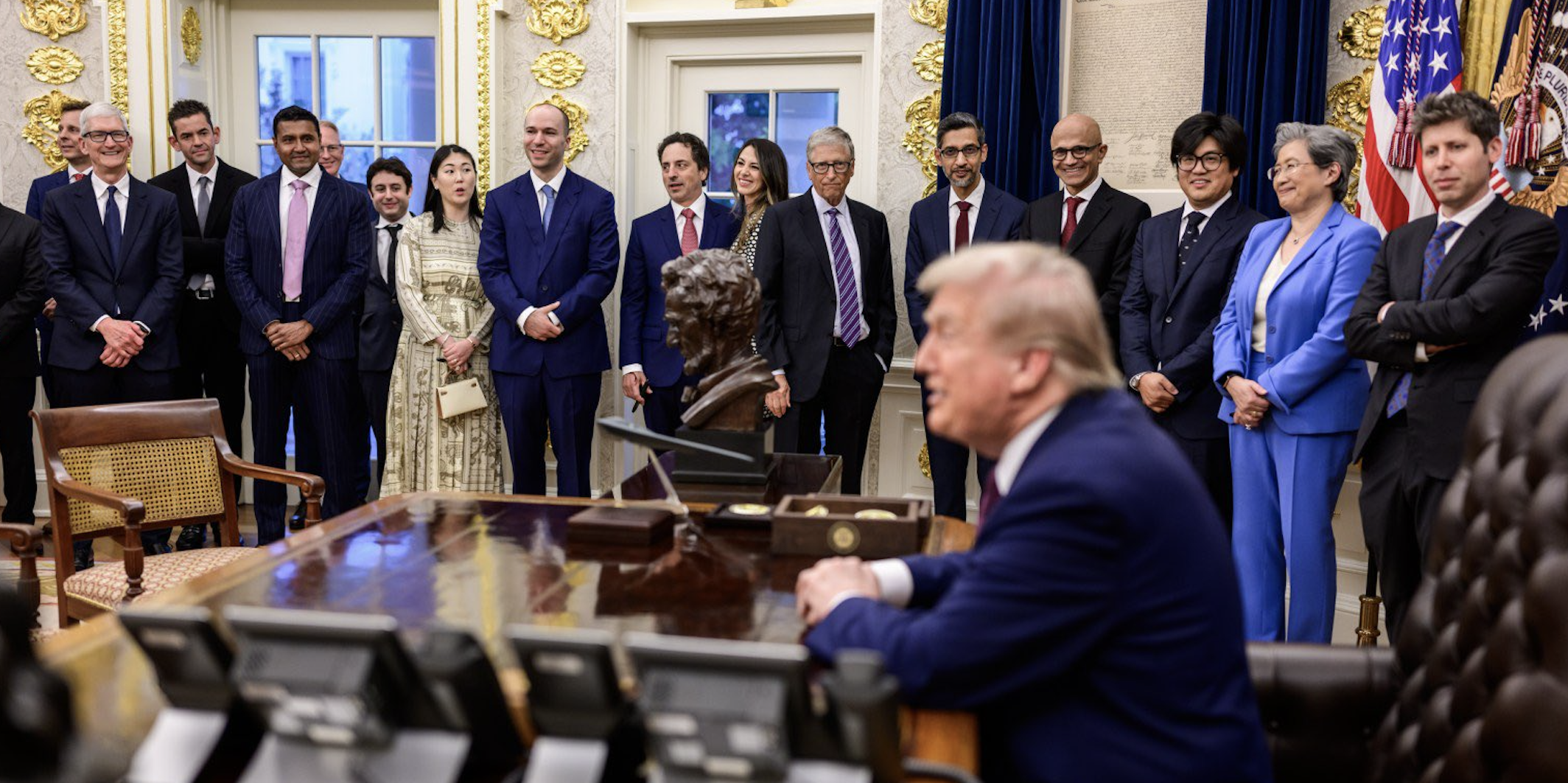Designing a system that will last is unimaginably hard. Designing a system which lasts and whose mission and actions continue to align is impossible. I've had a theory of vision entropy for a while, where the mission of a system degrades over time as power changes hands. But recently, I've seen a pattern where the mission of systems tend to decay to a point where they represent the antithesis of what they were designed to represent. That is definitely the most entertaining outcome.
I've been running an experiment for a few weeks now. I bring it up when I don't know what to say in a conversation (often). I ask the other person, "what form of government do we live in on paper versus in practice?" A very normal first-date type question.
Most people who've taken high school US History say "we're in a democracy/republic" but are unsure of what we are functionally. Everyone in my aristocratic bubble is aware of how campaign finance and redistricting have fucked up our mirage of a democracy but they still call the US a democracy. Aristotle would call our constitutional republic an elected aristocracy, but that disturbs most people. I always tell them that we're in an oligarchy functionally, but I never get much valid pushback—it's an open secret—but everyone seems to be chill with it.
The force of vision entropy has the outcome of rhetoric-reality inversion. The metric to track this is the rhetoric-reality error.
I see this inversion, between rhetoric and reality, everywhere:
- People want to feel like they have control, yet crave being told what to do
- People want to feel like they have liberty, yet demand safety so absolute that it strips them of liberty
- People want to feel like they live in a democracy, yet functionally accept an oligarchy
- People want to feel like they are rational, yet act from impulses and biases they don’t understand
- People want to feel like they are risk-takers, yet they follow the herd at every turn
- People want to feel like they are righteous, so they signal virtue loudly, yet in secret they betray the very values they project
- People wear cross necklaces and go to church, yet embody the opposite of the faith they claim. This inversion is true of every religion and ideology I’ve seen.
- People protest for free speech when it protects views they like, yet attack free speech the moment someone voices what they don’t like
- People want to feel like they value truth, yet reward the lies that comfort them
- People want to feel like they are independent thinkers, yet their identities are stitched together from Reels they've watched or Tweets they've read
- People want to feel like they are informed, yet consume information in ways that keep them ignorant
- People want to feel like they are compassionate, yet outsource cruelty to distant systems so they don’t have to see it
- People want to feel like they are modern and secular, yet cling to myths and rituals with the same fervor as any religion
- People want to feel like they are in control of technology, but have phantom limb syndrome the moment they leave their phone at home
- People want to feel like they are pursuing meaning, yet sacrifice it daily for comfort and convenience
The best way to analyze a system isn't in its "rhetoric" or "reality" but in the error between the two. There are two ways to look at this:
- the error may seem hypocritical at a glance, but it may be necessary for the success of the system (democracy needs democratic myths to stabilize oligarchy). It's irrational to try to prevent the inevitable, so just cover it up with a myth.
- the error represents the failure of the current system to match its intended ideal, and at a certain degree of error, the system must be overthrown to bring it back to the ideal. This represents the march of history
Nations demonstrate emergent effects from their constituent individuals:
- French Revolution (liberty turns into Terror)
- Soviet Union (workers’ state turns into bureaucratic dictatorship)
- Christianity ("turn the other cheek" turns into crusades/inquisitions)
- Chinese Communist Revolution (anti-bureaucracy turns into new bureaucracy)
- Roman Republic (anti-king turns into emperors)
- US (republic turns into oligarchy turns into ?)
History is obviously in some sort of steady-state equilibrium between rhetoric and reality, between anarchy and autocracy. In machine learning, the machine only learns if the error decreases over time, which means the predictions get closer and closer to the reality. If there was a system where the error only got worse over time, the model would need to be retrained. In our society, the "retraining" (revolutionary) ethic seems to relegated to a small number of outcasts who lead insurrections while the vast majority of us are fine with it. I wonder what degree of error would warrant a Revolution or if we should just be fine with the myth.
